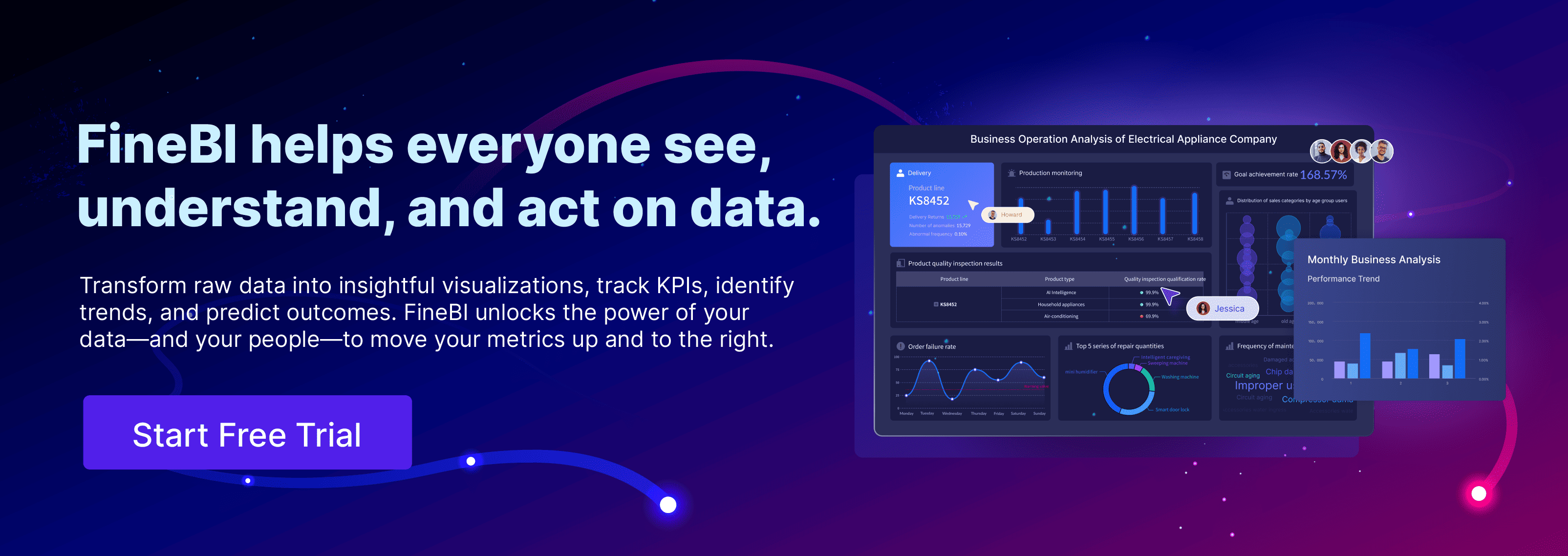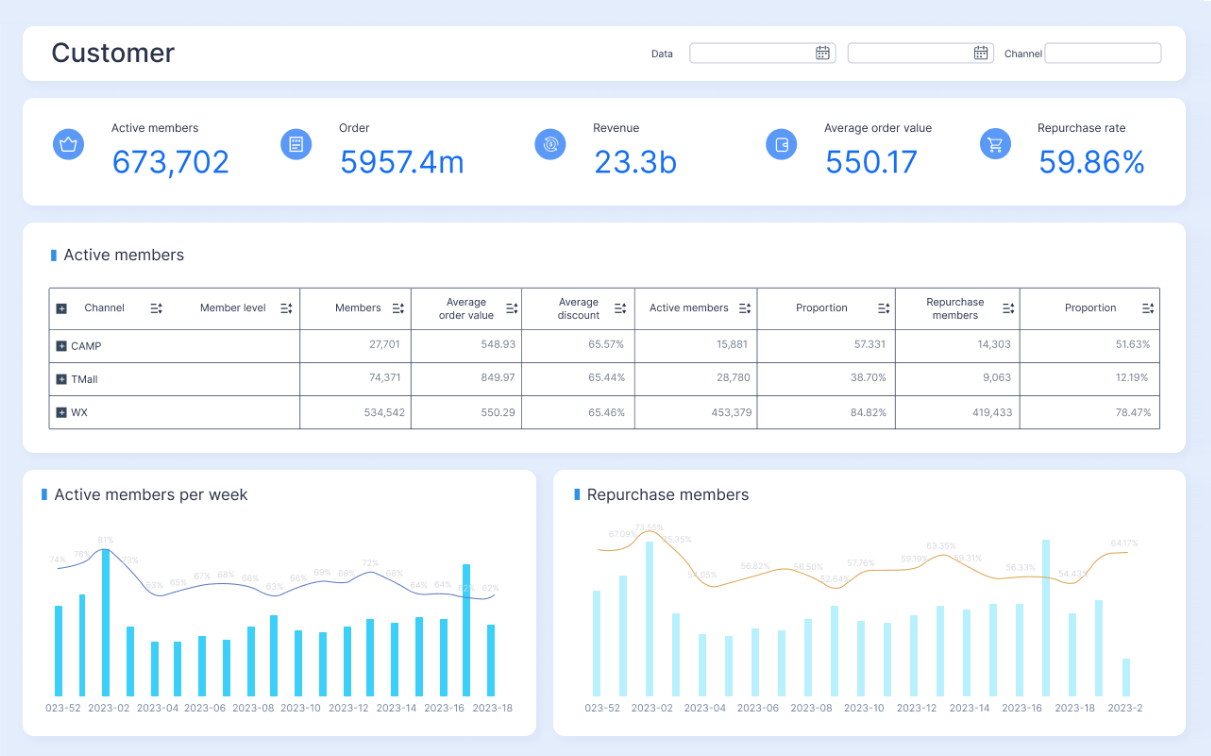The demand for data analyst job in Malaysia is surging as businesses increasingly rely on data-driven strategies. By 2025, the Malaysian government plans to produce 35,000 data professionals to meet the growing need. The Big Data Analytics market is also set to expand from $1.1 billion in 2021 to $1.9 billion by 2025, reflecting the rising opportunities in this field. To stand out in this competitive market, you must acquire essential skills and certifications. Programs like the FanRuan Global Certification Examination validate your expertise and enhance your employability, positioning you for success in this dynamic industry.

Key Takeaways for Data Analyst Job
- Data analyst jobs in Malaysia are increasing quickly in many industries.
- Important skills include SQL, Python, and tools like FineBI for showing data clearly.
- Networking matters; use LinkedIn to meet experts and find job openings.
- Learn new trends and improve your skills to stay ahead in this field.
Malaysia's Data Analyst Job in 2025
Key trends in data analytics and job opportunities
The data analytics field in Malaysia is evolving rapidly, creating exciting opportunities for professionals like you. Businesses are increasingly adopting data science to gain insights and make informed decisions. Globally, the demand for roles such as Data Analyst, Data Scientist, and Business Intelligence Analyst is growing faster than average. In Ireland, for example, the job market for data analytics is expanding 12% faster than the EU average. This trend reflects a global shift toward data-driven strategies, and Malaysia is no exception.
As organizations embrace advanced analytics tools, they seek skilled professionals to fill these roles. This demand opens doors for you to explore diverse career paths in data analytics. Whether you aim to work in finance, healthcare, or technology, the opportunities are vast and rewarding.

Level Up Your Data Analytics Skills—Starting Today!
Download our exclusive Data Analyst Learning Materials filled with tips, examples, and insights.
The rise of data-driven decision-making in Malaysia
Malaysia is witnessing a transformation in how businesses operate. Companies now rely on data-driven decision-making to stay competitive. This approach involves using data science to analyze trends, predict outcomes, and optimize processes. For example, e-commerce platforms use data to forecast sales and improve marketing strategies. Similarly, banks leverage data analytics for fraud detection and customer insights.
This shift toward data-driven practices highlights the importance of skilled data analysts. By mastering self-service BI tools like FineBI, you can position yourself as a valuable asset in this growing market. These tools enable businesses to visualize and interpret data effectively, driving smarter decisions.
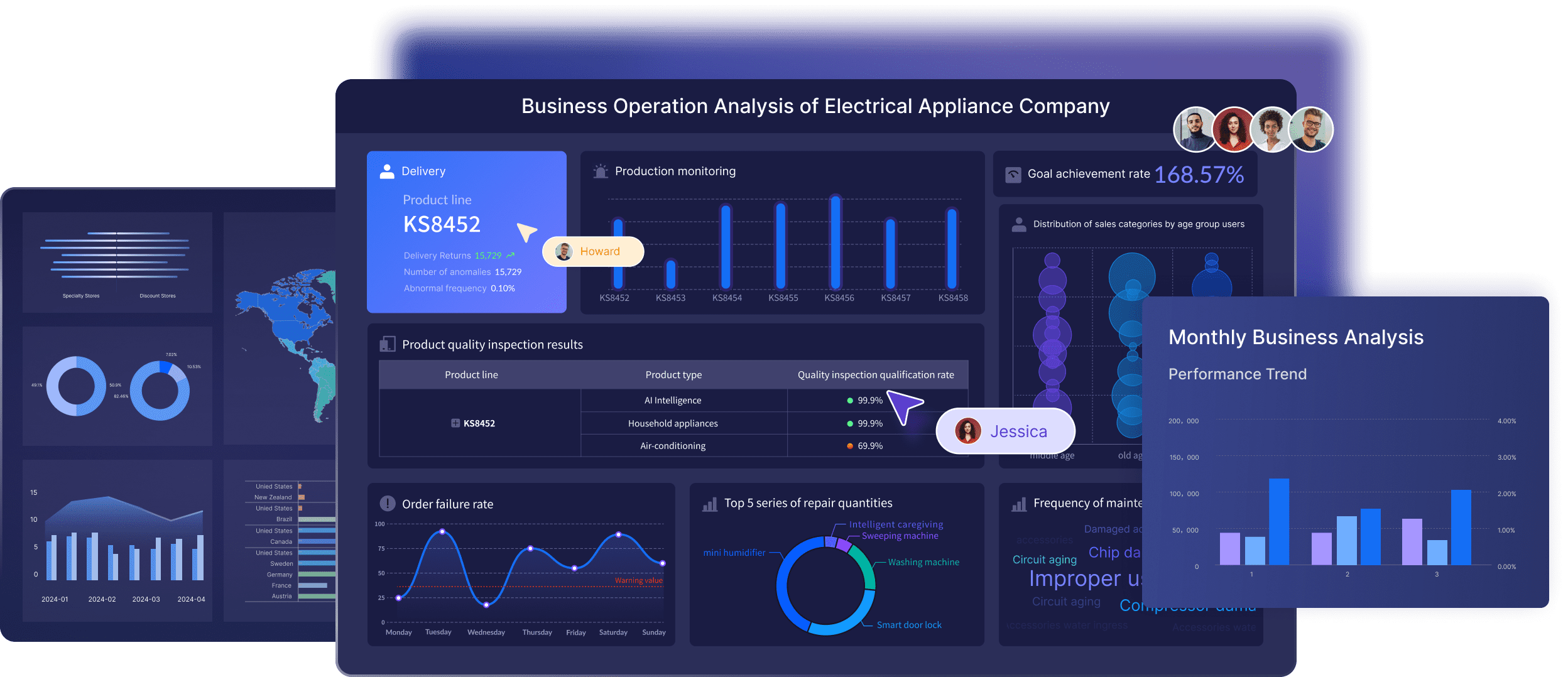
Demand for data analysts across industries
The demand for data analysts in Malaysia spans multiple industries. Technology companies analyze user behavior and market trends. Financial institutions focus on risk assessment and fraud prevention. E-commerce platforms optimize customer segmentation and sales forecasting. Healthcare organizations use data for clinical research and resource allocation.
Other sectors, such as consulting, government, and manufacturing, also rely on data analysts. For example, consulting firms provide analytics services to clients, while government agencies use data for policy analysis. Even nonprofits and educational institutions benefit from data science to measure impact and improve outcomes.
This widespread demand underscores the importance of acquiring data analytics skills. By staying updated with industry trends, you can unlock numerous opportunities in Malaysia's thriving job market.
Top Employers for Data Analyst Job in Malaysia
Leading multinational companies hiring data analysts
Multinational companies in Malaysia are actively seeking skilled data professionals to drive their operations. These organizations value data-driven insights to enhance decision-making and improve efficiency. Companies like IBM, Dell Technologies, and Accenture have established a strong presence in Malaysia. They offer exciting roles for data analysts, focusing on areas such as predictive analytics, business intelligence, and machine learning.
You can also explore opportunities with tech giants like Microsoft and Google, which have regional offices in Malaysia. These companies prioritize innovation and often look for candidates proficient in tools like FineBI. By joining such organizations, you gain exposure to global projects and cutting-edge technologies, which can significantly boost your career.
Prominent local firms and startups
Malaysia’s local firms and startups are equally promising for data analyst roles. Companies like AirAsia and Maybank are leading the way in adopting data analytics to optimize their operations. AirAsia, for instance, uses data to enhance customer experiences and streamline flight operations. Maybank leverages analytics for risk management and personalized banking solutions.
Startups in Malaysia are also creating exciting opportunities for data professionals. These companies often focus on innovative solutions in fintech, e-commerce, and health tech. Working in a startup environment allows you to take on diverse responsibilities and contribute directly to the company’s growth. This experience can be invaluable for building your expertise and expanding your professional network.
Government and public sector opportunities
The Malaysian government is heavily investing in data integration and analytics. This creates numerous opportunities for data analysts in the public sector. The government’s initiatives to enhance data sharing across various sectors highlight the growing demand for skilled professionals. For example:
- Real-time analysis during the COVID-19 pandemic demonstrated the critical role of data analysts in providing daily updates and insights.
- Legislative support for data exchange across government bodies emphasizes the importance of analytics in public health and welfare.
The public sector offers stable and impactful roles where you can contribute to national development. By working with government agencies, you can help shape policies and improve public services through data-driven strategies.
Essential Skills and Certifications for Data Analyst Job
Technical skills: SQL, Python, and data visualization tools
To excel as a data analyst, you need a strong foundation in technical skills. These skills enable you to extract, analyze, and present data effectively, making you an indispensable asset to any organization.
Proficiency in SQL is crucial for querying databases and retrieving valuable information. Python, a versatile programming language, allows you to clean, manipulate, and analyze data efficiently. Additionally, mastering data visualization tools like FineBI empowers you to create compelling visual representations of data, making complex insights easier to understand.
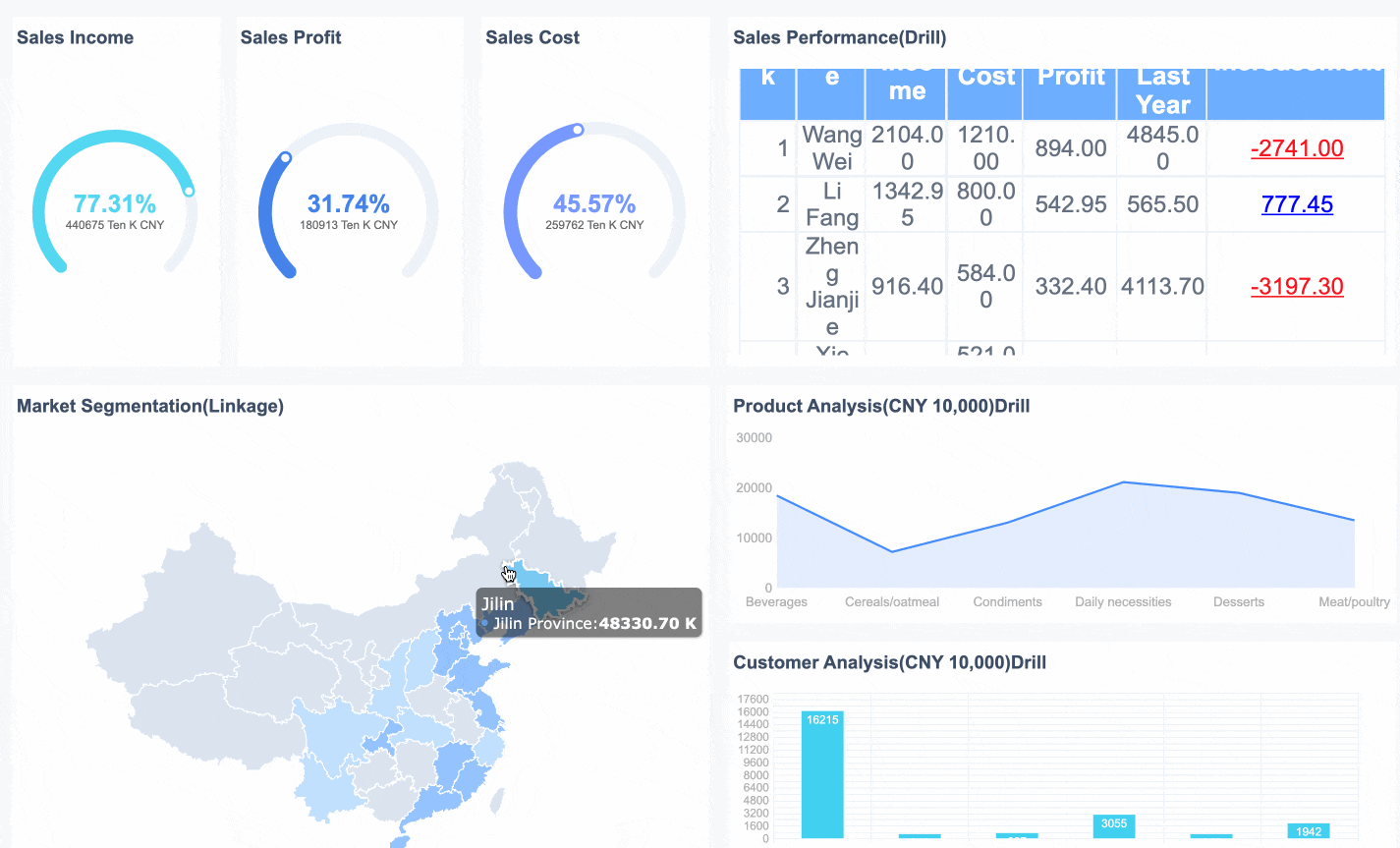
Here’s why these technical skills are essential:
- Data Analysts with expertise in tools like Power BI and FineBI are highly sought after, reflecting the growing demand for data visualization capabilities.
- SQL skills are indispensable for extracting and managing data from databases, a core responsibility in data analytics.
- Programming knowledge enhances your ability to prepare and analyze data, which is vital for informed decision-making.
By developing these technical skills, you position yourself as a competitive candidate in Malaysia's thriving data analytics job market.
Soft skills: Communication, problem-solving, and teamwork
While technical expertise is vital, soft skills play an equally important role in your success as a data analyst. These skills enable you to collaborate effectively, solve complex problems, and communicate insights clearly to stakeholders.
Strong communication skills help you present data findings in a way that resonates with both technical and non-technical audiences. Problem-solving abilities allow you to tackle challenges, such as identifying trends or anomalies in data. Teamwork ensures you can work seamlessly with colleagues across departments, fostering a collaborative environment.
For example, imagine presenting a data-driven strategy to a marketing team. Your ability to explain the insights clearly and answer questions confidently can influence critical business decisions. Similarly, working with a cross-functional team to implement a data solution requires effective collaboration and adaptability.
By honing these soft skills, you enhance your ability to contribute meaningfully to your organization’s data-driven initiatives.
Certifications: FanRuan Global Certification Examination and other industry-recognized credentials
Certifications validate your expertise and demonstrate your commitment to professional growth. In Malaysia, obtaining certifications like the FanRuan Global Certification Examination can significantly boost your career prospects in data analytics.
The FanRuan certification program offers credentials tailored to various roles, from entry-level to senior professionals. Certifications such as FineBI Associate and FineBI Professional showcase your proficiency in data visualization and analytics tools, making you a desirable candidate for top employers.

Investing in certifications provides several benefits:
- Certified professionals enjoy higher career opportunities, as the data analytics job market is projected to grow by over 25% in the next five years.
- Certifications often lead to higher earning potential, with certified data analysts earning 10% to 30% more than their non-certified peers.
- Credentials from recognized institutions enhance your credibility, making you a trusted professional in the field.
By obtaining certifications, you not only validate your skills but also gain access to exclusive job recommendations and networking opportunities. This investment in your professional development ensures you remain competitive in Malaysia’s dynamic data analytics industry.
Salary Expectations and Benefits for Data Analyst Job in Malaysia
Average salary ranges for entry-level, mid-level, and senior roles
Understanding salary expectations for data analysts in Malaysia helps you plan your career effectively. Entry-level roles typically offer salaries between $33,240 and $44,320 annually. Senior professionals earn significantly more, with salaries ranging from $66,480 to $99,720. Mid-level salaries vary based on experience and industry demand.
| Role Level | Salary Range (USD) |
|---|---|
| Entry-Level | $33,240 - $44,320 |
| Mid-Level | N/A |
| Senior Level | $66,480 - $99,720 |
These figures highlight the financial rewards of advancing in the data science field. Gaining entry-level industry experience can help you progress to higher-paying roles.
Factors influencing salary variations
Several factors affect salary expectations for data scientists in Malaysia. Your level of experience plays a significant role. Entry-level industry experience often determines your starting salary. Advanced technical skills, such as proficiency in data science tools like FineBI, also increase your earning potential.
The industry you work in influences your salary as well. Sectors like finance and technology offer higher compensation due to the demand for data analytics. Location matters too. Data analysts in major cities like Kuala Lumpur often earn more due to the higher cost of living and greater job opportunities.
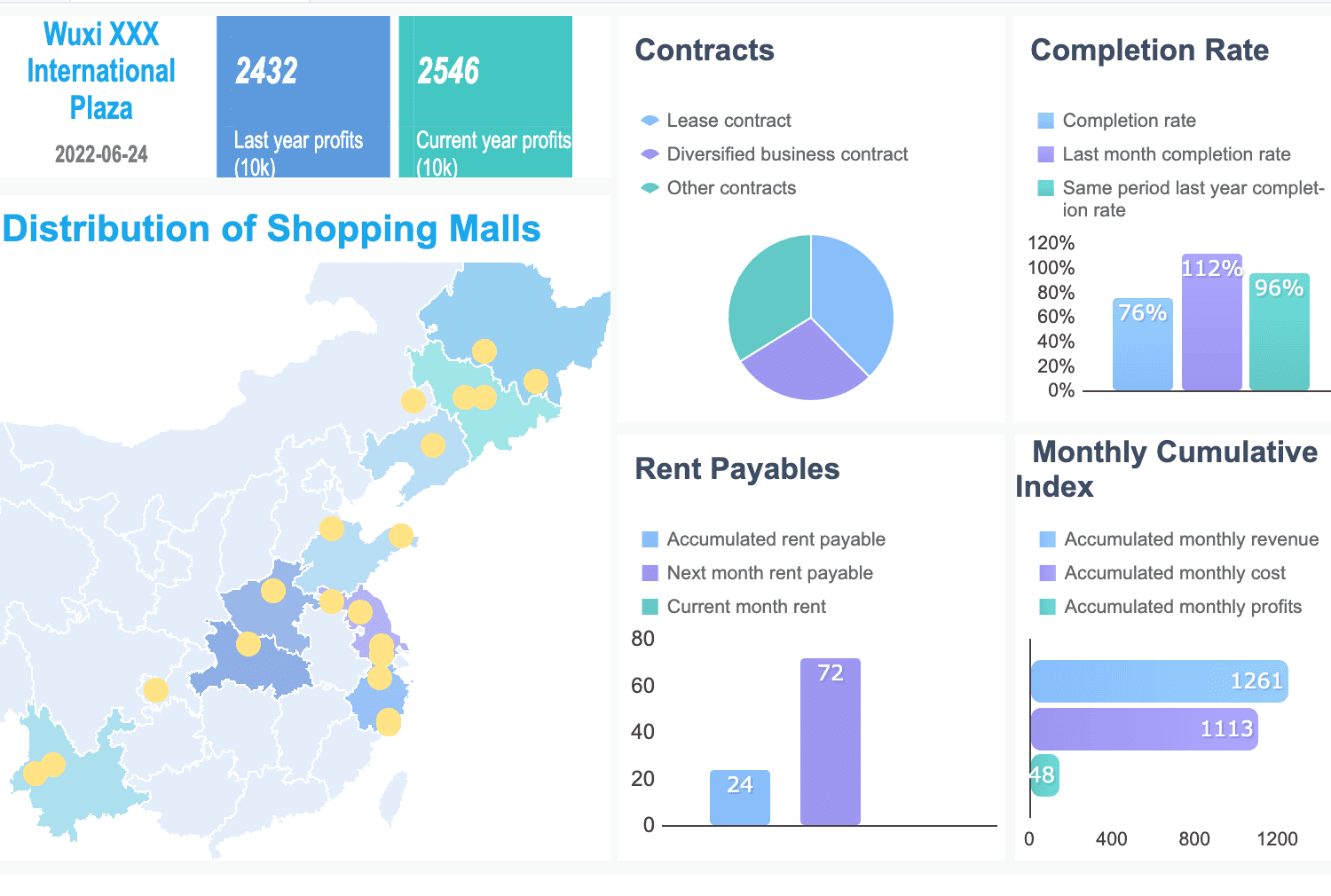
Additional benefits offered by top employers
Top employers in Malaysia provide more than just competitive salaries. They offer a range of benefits to attract and retain skilled professionals. These perks enhance your overall job satisfaction and work-life balance.
- Statutory and common employee benefits
- Supplemental healthcare
- Learning and professional development opportunities
- Home office stipends
- Additional paid time off
- Transportation allowances
- Meal vouchers or subsidized meals
- International health insurance and housing allowances for expatriates
- Relocation assistance, including school fees and travel expenses
These benefits reflect the growing demand for data science professionals and the value organizations place on their expertise. By choosing employers that offer such perks, you can enjoy a fulfilling career in Malaysia’s thriving data analytics industry.
Preparing for Data Analyst Job Interviews
Common interview questions and how to answer them
Preparing for a data analyst interview involves understanding the role and mastering key concepts. Interviewers often ask questions to assess your technical knowledge, problem-solving abilities, and communication skills. Here are some common questions and tips to answer them effectively:
- "Can you explain the difference between descriptive and inferential statistics?"
Highlight your understanding of both concepts. Descriptive statistics summarize data, while inferential statistics draw conclusions from data samples. Use examples to clarify your explanation. - "How do you handle missing data in a dataset?"
Discuss techniques like imputation, removing incomplete rows, or using algorithms that handle missing values. Explain your approach based on the context of the data. - "What tools have you used for data visualization?"
Mention tools like FineBI or Tableau. Share how you used them to create dashboards or reports that helped stakeholders make informed decisions.
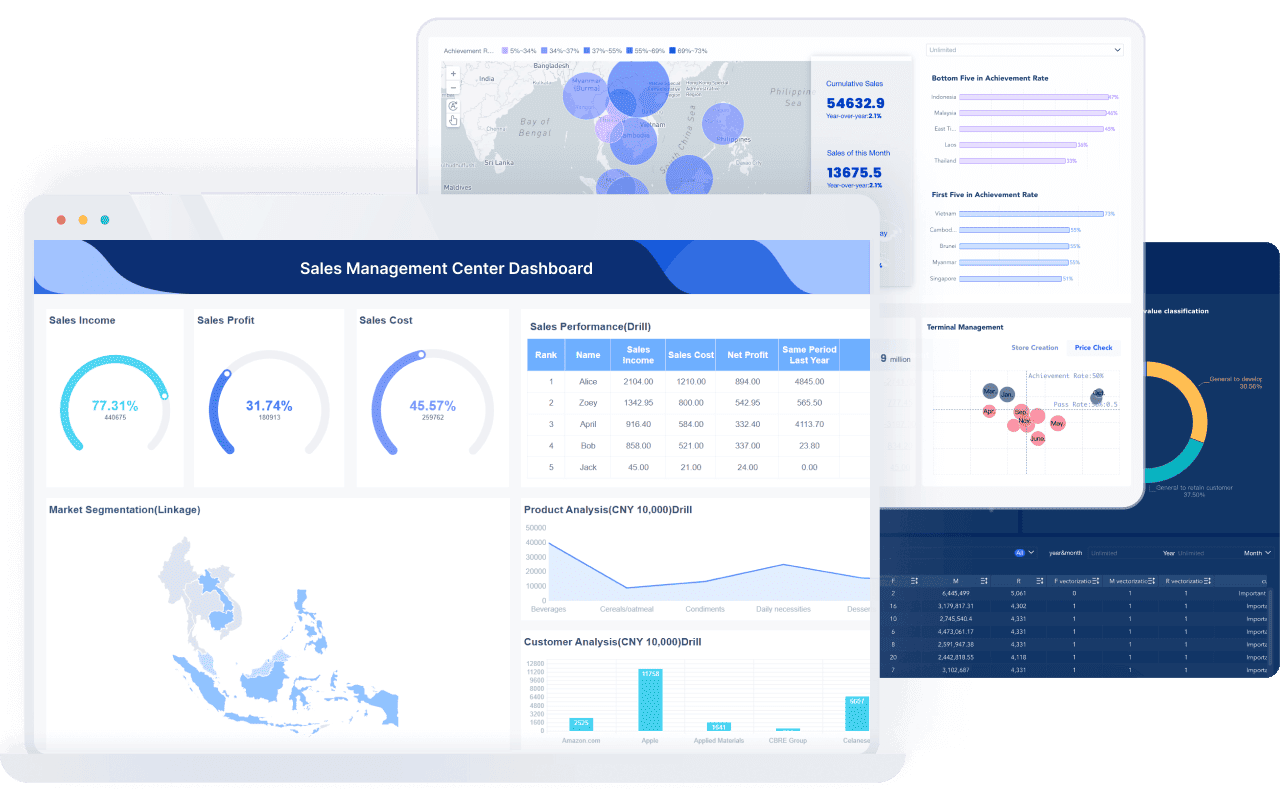
Mock interview studies show that familiarity with the role and concepts boosts confidence. Brush up on statistical analysis and tools to improve your performance during interviews.
Networking and leveraging professional connections
Networking plays a crucial role in securing data analyst jobs in Malaysia. Build connections with professionals in the field through LinkedIn. Join relevant groups and engage in discussions to stay updated on industry trends.
Attend industry conferences, webinars, and local meetups to broaden your network. Becoming a member of professional associations like the Data Visualization Society can also open doors to new opportunities. Many professionals, such as Goh Jia Ean and Mudzaffar Ismail, have credited networking programs for helping them secure roles and expand their career prospects.
By actively networking, you increase your chances of connecting with top companies and gaining valuable insights into the data science industry.
Growth Opportunities in Data Analyst Job
Potential career paths for data analysts
Data analytics offers diverse career growth opportunities, making it an exciting field to explore. As a data analyst, you can transition into specialized roles or leadership positions. Some potential career paths include:
- Data Scientist
- Management Consultant
- Market Research Analyst
- Operations Research Analyst
- Risk Manager
The demand for data analysts is projected to grow by 18.4% by 2032, reflecting the increasing reliance on data-driven strategies. You can also explore unique roles like Biostatistician or Actuary, which combine data science with specific industries. These options highlight the versatility of a career in data analytics, allowing you to align your skills with your interests.
Upskilling with platforms like FineDataLink
Upskilling is essential for staying competitive in the fast-evolving data science industry. Platforms like FineDataLink provide you with tools to enhance your expertise in data integration and real-time analytics. By mastering these tools, you can build efficient data pipelines and improve data quality, which are critical for business intelligence.
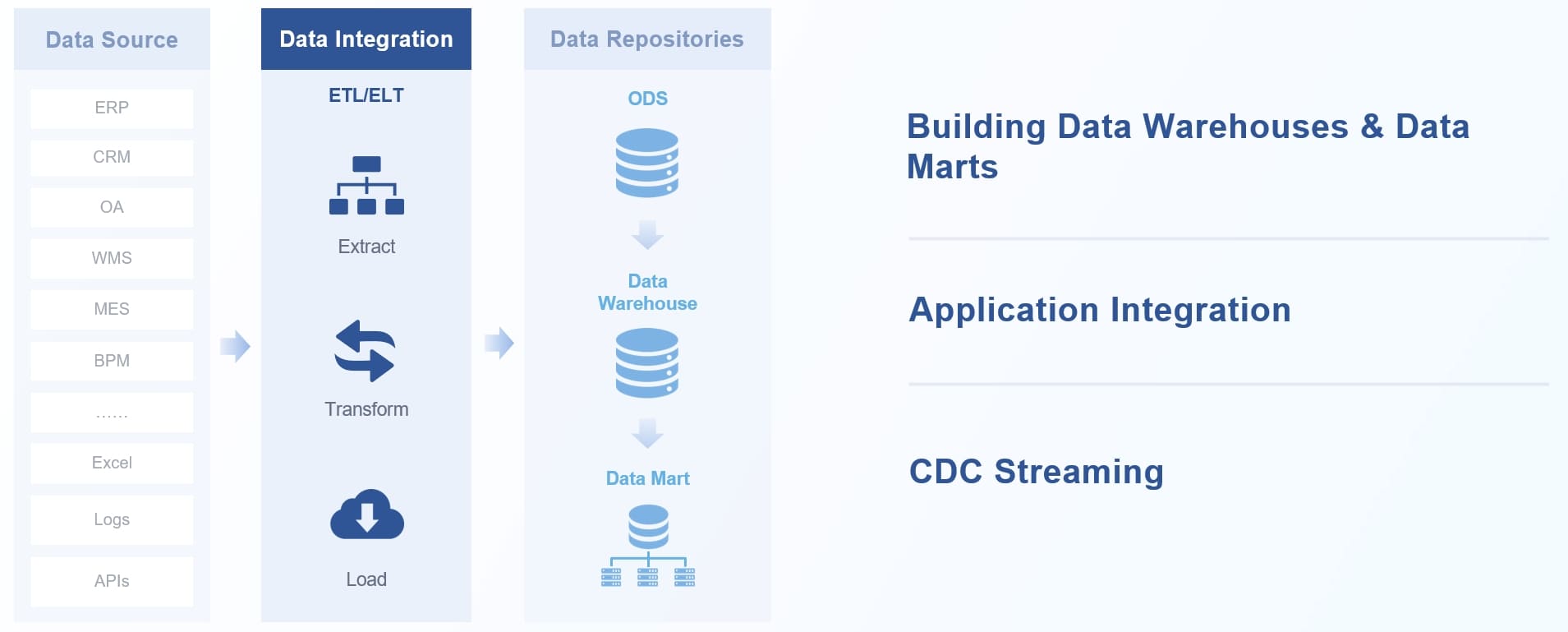
Online learning reports reveal that 63% of employees experience salary boosts after upskilling. Additionally, 55% report improved performance in their roles. Employers increasingly value online certifications, with 52% recognizing their importance. By leveraging platforms like FineDataLink, you can gain practical skills that enhance your employability and bargaining power.
Long-term prospects in Malaysia's data analytics industry
The long-term outlook for data analytics in Malaysia is promising. Businesses are adapting to the digital revolution, creating a strong demand for skilled professionals. The field offers numerous career choices, from business analytics to operations research, ensuring a variety of opportunities for graduates.
Global firms actively seek experts who can analyze data and provide actionable insights. This trend aligns with Malaysia's growing emphasis on data science as a competitive advantage. As the industry continues to expand, you can expect robust career growth opportunities and job security.
Landing the best data analyst job in Malaysia requires a strategic approach. Start by tailoring your resume and cover letter to highlight your data skills. Prepare for interviews by mastering technical tools like FineBI and FineDataLink. Certifications, such as the FanRuan Global Certification Examination, validate your expertise and make you stand out.
Staying updated with industry trends is equally important. The global data analytics market is growing rapidly, driven by advancements in AI and IoT. Businesses increasingly rely on data to predict trends and make informed decisions. By continuously improving your skills, you can remain competitive in this dynamic field.
Pro Tip: Invest in certifications and stay ahead of the curve to unlock exciting opportunities in Malaysia’s thriving data analytics industry.
Click the banner below to experience FineBI for free and empower your enterprise to convert data into productivity!
Continue Reading about Data Analyst Job
How Do Data Analyst Jobs Differ in Startups and Big Companies?
What is the Average Data Analyst Salary in Chicago in 2025
Data Analyst Salary Trends for Malaysia in 2025
Steps to Become a Data Analyst Malaysia
FAQ

The Author
Lewis
Senior Data Analyst at FanRuan
Related Articles

10 Best Retail Analytics Software Platforms for Retailers
Compare the 10 best retail analytics software platforms for retailers to boost sales, optimize inventory, and gain actionable customer insights.
Lewis
Dec 16, 2025

11 Best Tools for Research Analysis for Academics
Compare the 11 best tools for research analysis to boost academic and professional research efficiency, data management, and collaboration.
Lewis
Dec 11, 2025

10 Best Market Research Data Analysis Tools to Try This Year
See the top 10 market research data analysis tools to boost insights, streamline workflows, and make smarter business decisions this year.
Lewis
Dec 11, 2025
